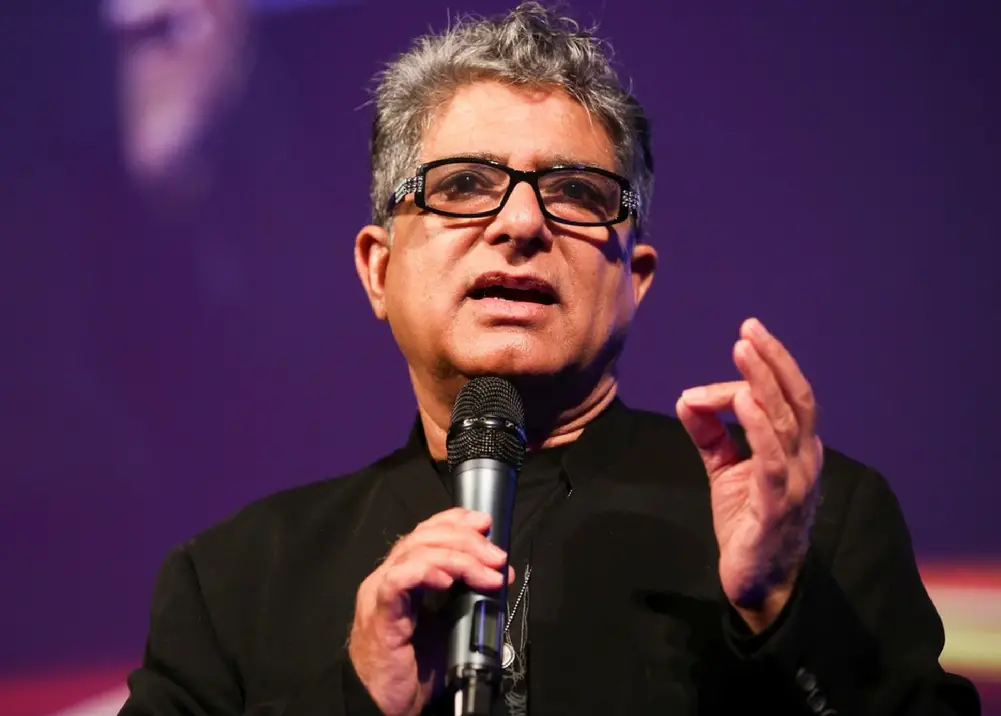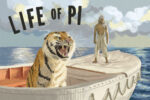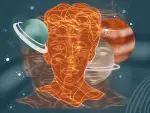After experiencing a cosmic revelation following his father’s sudden passing, Deepak Chopra created “The Book of Secrets,” an exquisite masterpiece compiling 15 wisdoms that provide readers with ways to access the hidden dimensions of their lives.
Managing to immortalize his parent’s graceful life and death while simultaneously purging his emotions about the situation, Chopra has helped millions of people open their souls up like a book, flipping through pages to uncover answers to the enigmatic intricacies of existence.
In the book’s introduction, Chopra writes, “The secret hunger that gnaws at people’s souls has nothing to do with externals like money, status, and security. It’s the inner person who craves meaning in life, the end of suffering, and answers to the riddles of love, death, God, the soul, good and evil. A life spent on the surface will never answer these questions or satisfy the needs that drive us to ask them. Finding the hidden dimensions in yourself is the only way to satisfy your deepest hunger.”
These components, ranging from how to choose the most fulfilling soul mate or career to finding meaning in every stage of life, remind readers that we must allow positive change to occur within our minds and before our very eyes. However, this will only happen if we delve into our souls to unlock them.
Described by TIME Magazine as “one of the top 100 heroes and icons of the century,” Chopra has revolutionized integrative healing and personal transformation. Although he is a renowned physician, Chopra advocates alternative medicine and spirituality as major components of healthy minds and bodies. Chopra has written 80 books to date, and they are translated in over 40 languages. More than 20 of them have made it onto the New York Times’ best-sellers list.
“The Book of Secrets” remains one of Chopra’s most skillfully crafted works, not only for the profound insight it offers, but the ways it challenges readers to apply the text to their real lives. Unlike most self-help books, which simply throw general pieces of advice at you, each chapter of “The Book of Secrets” provides a specific theory backed up by science and exercises for practicing the idea first-hand.
One of the most impactful secrets Chopra let’s us in on is that “You are not the world; the world is in you.” This means that you and I are the creators of every perception we take in, choosing the details that build our realities. To truly possess this secret, Chopra writes, you must “begin to see yourself as a co-creator in everything that happens to you.” Think about it: nothing could exist for you without you personally inviting it into your realm of actuality; even a chair sitting across the room would be nonexistent unless you gave it attention and brought it to life.
Our outer world is a direct reflection of the feelings we house inside. Therefore, listening to our inner monologues is the best way to analyze whether we are satisfied or dissatisfied with the ways we are going through our lives.
I want everyone reading this right now to picture your desk or workspace in its current state. Is it cluttered and chaotic? If so, this area of your life might be symbolic of inner disorder, fear of meeting one’s obligations or taking on too much responsibility. Is it well-arranged, calm and inviting? Then you are probably on top of your duties, and feel confident about the ways you manage your time.
Next, envision your social world. Chopra writes, “When you are with your family or friends, listen with your inner ear to what is going on.” In these moments, you should ponder whether you hear words of kindness and support.
Do the people around you make you feel alive or alert? Do you experience fatigue in these situations? Does it feel routine or are these people truly responding to each other? Your answers to these questions will help you assess the world you have created and the feelings that emerge inside of you.
Exercises, such as the ones above, help us develop an intense kind of awareness about the world and our role as creator. The last drill in this section of the book I want to share is what Chopra describes as “meditating on a rose.”
Get a red rose, hold it in front of you, inhale the beautiful scent and say to yourself, “Without me, this flower would have no fragrance.” Admire its pigment and think, “Without me, this flower would have no color.” Stroke the velvety petals and realize, “Without me, this flower would have no texture.” If you remove yourself from any sensation — scent, sight, touch, etc. — the flower would cease to exist as more than atoms vibrating in a void. “All energy comes from one source and returns to it.”
I’ve touched on merely one of the 15 extensive topics Deepak Chopra breaks down in “The Book of Secrets.” The rest of them go as follows: “the mystery of life is real, four paths lead to unity, what you seek, you already are, the cause of suffering is unreality, freedom tames the mind, every life is spiritual, evil is not your enemy, you live in multidimensions, death makes life possible, the universe thinks through you, there is no time but now, you are truly free when you are not a person, the meaning of life is everything and everything is pure essence.”
If these subjects catch your attention, and you’re interested in applying them to your life, then “The Book of Secrets” is a must-read for you.
















